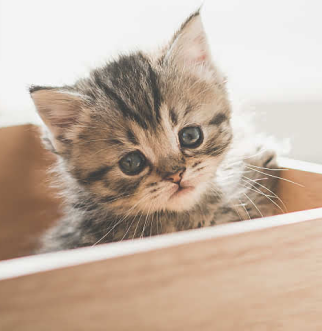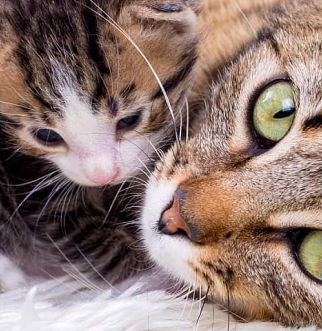
-
Find the right food for your pet
Take this quiz to see which food may be the best for your furry friend.
Find the right food for your pet
Take this quiz to see which food may be the best for your furry friend.
Featured products
 Adult 7+ No Corn, Wheat, Soy Chicken & Brown Rice Dog Food
Adult 7+ No Corn, Wheat, Soy Chicken & Brown Rice Dog FoodSupports energy level and beautiful coat in mature dogs
Shop Now Adult Perfect Weight & Joint Support Chicken Recipe Dry Dog Food
Adult Perfect Weight & Joint Support Chicken Recipe Dry Dog FoodThis weight management and mobility support dog food was created with Hill’s unique understanding of the biology of overweight dogs.
Shop Now Adult 7+ Perfect Digestion Chicken, Whole Oats & Brown Rice Recipe Dog Food
Adult 7+ Perfect Digestion Chicken, Whole Oats & Brown Rice Recipe Dog FoodScience Diet's breakthrough nutrition supports ultimate digestive well-being & healthy microbiome for dogs age 7+
Shop NowFeatured products
 Adult Perfect Digestion Chicken, Barley & Whole Oats Recipe Cat Food
Adult Perfect Digestion Chicken, Barley & Whole Oats Recipe Cat FoodScience Diet's breakthrough nutrition supports ultimate digestive well-being & healthy microbiome
Shop Now Adult Savory Chicken Entrée Cat Food
Adult Savory Chicken Entrée Cat FoodPrecisely balanced nutrition with the delicious taste of savory minced chicken to help fuel the energy needs of cats during the prime of their life
Shop Now Perfect Weight Salmon & Vegetable Canned Cat Food
Perfect Weight Salmon & Vegetable Canned Cat FoodOver 70% of cats lost weight within 10 weeks when fed this nutrition
Shop Now -
Dog
- Dog Tips & Articles
-
Health Category
- Weight
- Food & Environmental Sensitivities
- Urinary
- Digestive
- Joint
- Kidney
-
Life Stage
- Puppy Nutrition
- Adult Nutrition
- Senior Nutrition
Cat
- Cat Tips & Articles
-
Health Category
- Weight
- Skin & Food Sensitivities
- Urinary
- Digestive
- Kidney
-
Life Stage
- Kitten Nutrition
- Adult Nutrition
Featured articles
 Pet Food Storage Tips
Pet Food Storage TipsDiscover how and where to store your dry, as well as canned, dog and cat food. Learn how to find the "best before" dates on all Hill's pet food packaging.
Read More Water
WaterDiscover why water is the most important nutrient for your dog or cat to live a healthy life. Find out how much water your pet should consume each day.
Read More The Incredible Science Behind Your Pet's Microbiome
The Incredible Science Behind Your Pet's MicrobiomeLearn what a pet's microbiome is, how it contributes to your pet's gut & overall health, and why nutrition is important in maintaining healthy microbiomes.
Read More -
Find the right food for your pet
Find the right food for your pet


Is My Cat Too Skinny?
Knowing whether your cat is too skinny can be challenging. Fortunately, there are two easy tools you can use to determine if your cat is too thin, overweight or just right.
- The Body Condition Score: Visit your veterinarian if you are concerned about your cats weight. The veterinarian will use the BCS (comparable to body mass index for humans). A body condition score chart can help you determine if your cat is too skinny. You can find the chart online for reference, from organizations like the American Animal Hospital Association and World Small Animal Veterinary Community, or at your vet's office.
- The Hand Test: You can also use your hand as a reference to determine your cat's body condition. Feel your cat's ribs (located behind their front legs); if they feel like the back of your hand, then their weight is just right. If their ribs look or feel like your knuckles, then you have a skinny cat. If the ribs feel like your palm, then they're likely overweight. Still not sure? Check out this video from dvm360 that demonstrates the hand test.


Tasty Tips
Healthy pets are happy pets, and no one is a better resource than your pet’s veterinarian.
Causes of Weight Loss in a Skinny Cat
There are two main causes for a skinny cat: Either they aren't eating enough, or they're expending more calories than they are taking in. They may not be eating enough due to stress, dental disease, nausea or a host of other reasons. Cats with certain diseases can experience weight loss and this can be the first, and sometimes the only, outward sign that an underlying disorder has developed. Weight loss can also be due to age-related decline in digestive function that can occur in some geriatric cats over 10 years of age.
The other reason that a cat might be too skinny is a lack of access to food. If you find a stray cat that is malnourished, you can contact your local shelter or veterinarian to get their opinion on what to do to bring the cat back to a state of health. They may direct you to bring them in if possible. Adopted stray cats should always be taken to the veterinarian and to screen for health problems.
While a skinny cat doesn't necessarily mean a medical emergency, if you think your cat might be too thin, it's important to schedule a checkup with your veterinarian to determine the cause of weight loss.

In the U.S., roughly 60 percent of cats are overweight.
How to Put Weight on a Cat
If you think your kitty needs to gain weight, you should first bring them to the veterinarian so that underlying medical conditions can be ruled out. If no health problems are found, your veterinarian can guide you in getting your cat back on track and gaining weight. They may suggest some of the following.
- Healthy (but skinny) cats may simply need more meals per day and/or free access to dry food in order to gain weight. Cats prefer to 'graze' or eat small meals throughout the day so having food available all day long can make all the difference. Be sure to check with your vet to see if this would be a good option for your cat. Free choice food could lead to obesity and is only recommended in certain circumstances.
- If you have more than one cat, one might be guarding the food, preventing another from eating their fill. Make sure that all cats have access to food throughout the day in a safe, non-threatening environment.
- If your cat is nervous, make sure the food bowl is not near an object that is scaring them such as a cycling furnace, air conditioner, noisy pipe, or barking dog.
- If you feed your cat dry kibble, offer them canned food in addition to dry (or vice versa).
- If you tend to dress up their food with toppers and baby your cat at mealtimes, offer simple meals straight out of the bag or can in a quiet place without a lot of fuss.
- For cats that are truly finicky, try different flavors and consistencies of both dry and wet food — some cats prefer chicken pate, others salmon stew — but make sure to properly transition their food to avoid any digestive upset.
- Heat their food in the microwave for a few seconds to enhance its aroma. Make sure to use an appropriate microwavable container when doing so and check the temperature before feeding.
- Shred a very small amount of rotisserie chicken into their food; most cats love the smell and flavor of roasted chicken. Just be sure to only feed skinless white meat. Remember your cat's daily meal should be mainly a well-balanced cat food.
- Try adding a very small amount of the liquid from canned tuna or unsalted chicken broth to your cat's food.
Some cats may simply need a higher-calorie food and could benefit from a high-calorie, canned food. Older cats struggling to keep on weight may benefit from a highly digestible food rich in antioxidants, omega-3 and -6 fatty acids and prebiotics. If your cat is diagnosed with a health concern, your veterinarian may be able to recommend a therapeutic food specifically designed to help your pet.
Always check with your veterinarian before changing your cat's food or giving them nutritional supplements.
If you think your kitty might be too skinny, consulting their vet is always the best course of action. They can help you come up with strategies to get your cat to eat more and can determine if there are any serious issues underlying the weight loss. Hopefully, with a little patience and veterinary input, you'll have your fluff ball back to a healthy weight in no time.


Dr. Sarah Wooten graduated from UC Davis School of Veterinary Medicine in 2002. A member of the American Society of Veterinary Journalists, Dr. Wooten divides her professional time between small animal practice in Greeley, Colorado, public speaking on associate issues, leadership, and client communication, and writing. She enjoys camping with her family, skiing, SCUBA, and participating in triathlons.
Related Articles



See what Vets have to say
Read reviews from the experts and see why Hill's is the #1 Veterinarian Recommended brand.
See what Vets have to say
Read reviews from the experts and see why Hill's is the #1 Veterinarian Recommended brand.




